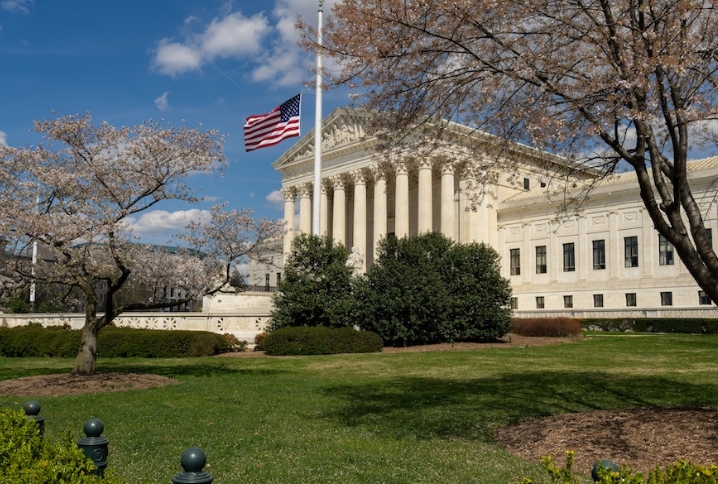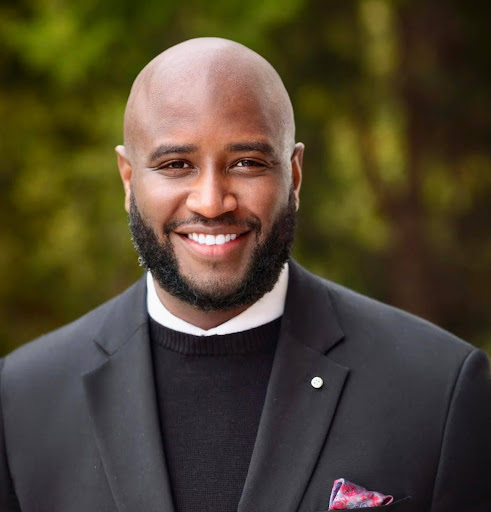July 10, 2025
Secretary Robert F. Kennedy Jr.,
United States Department of Health and Human Services
200 Independence Avenue, SW Room 716G
Washington DC 20201
Docket: AHRQ-2025-0001
Document Identifier: 4040-0012-30D
RE: HHS Docket No. AHQR-2025-001, Ensuring Lawful Regulation and Unleashing Innovation to Make America Healthy Again, National Black Child Development Institute Request for Information Response
Dear Secretary Kennedy,
The National Black Child Development Institute (NBCDI) is a civil rights organization focused on improving the quality of life for Black children, birth through age eight, and their families. As the preeminent think and do tank for Black children and families, we are guided by our Eight Essential Outcomes for Black Child Development framework that recognizes key indicators in the first eight years of a child’s life setting the foundation of growth, health, development, and wellness for the rest of their lives. Serving as the only national organization focused on Black children birth through age eight, we are a powerful voice that amplifies the brilliant strength and wisdom rooted in the knowledge, experiences, and expertise of Black families. Over the last 55 years, NBCDI has mobilized communities, provided direct services and programs, advocated and advanced socially just policies, disseminated research and recommendations, and created powerful movements to drive true systems change in partnership with our National Village Network.
How our expertise shows up
Our National Village Network is key to who we are as an organization as well as how we do our work. It plays a vital role in informing our strategies and ensuring that our efforts are grounded in the diverse yet unified strengths and needs of Black communities. The power of our network of 26 Villages across 17 states and the District of Columbia grows within the dynamic leaders who forge powerful and authentic relationships with families, children, and communities across the country. Through community-based, agency, and philanthropic partnerships at the state and local levels, they address immediate needs via direct services and programs and drive long-term shifts in policy, advocacy, and research through community mobilization. The reach and power of our National
Village Network provides deep insight of the lived realities of Black children and families across the country, including the impacts of regulations on access to and quality of public services and programs.
NBCDI recognizes the importance of responding to the Department of Health and Human Services (HHS) Request for Information (RFI) on Ensuring Lawful Regulation and Unleashing Innovation to Make America Healthy Again as it has deep implications on the effective and equitable implementation of federal laws that shape programs and services related to our Eight Essential Outcomes for Black Child Development. Within the scope of HHS’s programs and partnerships some of the potential impacts include:
- Access to clean water through collaborations with the Environmental Protection Agency and the Centers for Disease Control on issues related to drinking water standards, health advisories, and lead reduction in schools and child care facilities.
- Maternal and infant health programs and services delivered through Medicaid.
- Healthy meals with vegetables through food safety efforts within the Food and Drug Administration and efforts to address food and nutrition security.
- Child care and early education access through programs such as the Child Care and Development Block Grant, Head Start, and Early Head Start.
Ensuring that the appropriate regulations exist to provide the funding, oversight, accountability, and capacity necessary for programs and services to equitably support Black children and families is critical. These comments reflect NBCDI’s deep collective knowledge and expertise that we bring from the diverse experiences, perspectives, and shared history of Black families from across our National Village Network.
Key Concerns
Executive Order 14192 and 14219 call for HHS, and other agencies, to identify and remove regulations that are deemed unconstitutional, unlawful, costly, or burdensome without regard to the potential for removing certain regulations that could strip safeguards for the health and wellbeing of children and their families. Regulations have been used to both marginalize and reduce access to programs and services for Black communities as well as to protect them against unfair treatment because of inconsistent application of the law and race-based restrictions. The proposed blanketed approach to deregulation is concerning as it does not consider the protective nature of regulations; instead, it imposes restrictions on instituting new regulations that could improve protections and fair access. It is also driven by the desire to cut costs and increase efficiency. We strongly encourage the administration to take a community-centered and balanced approach to removing harmful regulations and instituting new regulations. This process must be informed by diverse lived experiences through fair and easily accessible pathways for input, with the goal of improving people’s lives instead of cost savings and mass deregulation objectives.
It is vital that there is a process to assess the regulations that have been identified through this RFI to mitigate unintended consequences of such removals due to the rigid focus on cost savings and efficiency instead of health and well-being. The Department of Health and Human Services houses programs and services that are critical to the health and well-being of communities. While some regulations may be labeled as costly and extraneous, in reality, they are tied to anti-discrimination measures, provide transparency to communities, support equitable allocation of resources, create accountability, ensure funds are spent as intended, and maintain stable access to programs and services. Assessing the regulations that shape and govern programs and services can be helpful but must be done in consultation with families and communities, as some regulations deemed burdensome and wasteful may actually be safeguards that ensure Black children, families, and their communities receive necessary supports and equitable access to services.
Recommendations
Shift the Conversation from Deregulation to Re-Regulation
NBCDI urges that the Trump administration shifts from a blanket deregulatory approach that centers waste management to an equity-centered re-regulation framework—one that strengthens and modernizes protections that safeguard children and families. Deregulation without an equity lens too often erases the very policies designed to protect communities most impacted by systemic disinvestment and promote health and safety. Re-regulation offers a chance to repair harm, reimagine care, and ground federal standards in justice, wellness, and sustainability.
From Cost-Cutting to Community-Centered Decision-Making
NBCDI calls for community wellness—not cost alone—to be the guiding principle for evaluating federal programs, regulations, and contracts. Policies shaped solely by economic metrics miss the holistic needs of Black families—like culturally responsive care, educational equity, and maternal and infant health. NBCDI urges HHS and other agencies to use community-defined indicators of wellness, like access to joy, safety, healthcare, and thriving learning and care environments, as part of their evaluation criteria.
Elevate Community Voice with Transparency and Intentionality
Finally, NBCDI calls for a thoughtful process that mandates meaningful and transparent engagement with historically excluded communities, including Black parents, caregivers, and community-based organizations, as part of any regulatory review, workforce reform, or policy development under this initiative. The current structure of this RFI to implement the directives under E.O. 14192 and 14219 positions federal agency leaders as the sole authorities on which regulations are ultimately deemed burdensome, outdated, or inefficient. There must be intentional mechanisms and equitable pathways for public input to identify the consequences of removing regulations and pose alternative policies that mitigate harm and avoid disproportionate impacts on Black and other communities that have been historically excluded. The current approach centralizes agency leadership and omits community voice. NBCDI recommends:
- Pre-decision listening sessions
- Public reporting of who was engaged and how feedback was used
- Dedicated equity liaisons in each agency
As an organization rooted in the lived experiences and brilliance of Black children and families, NBCDI believes governance should not be streamlined at their expense. We urge this administration to reimagine efficiency—not as reduction, but as reinvestment in care, equity, and community sustainability.
Point of contact:
Please direct responses and inquiries to Alycia Hardy, Vice President, Policy & Research, NBCDI at moreinfo@nbcdi.org



